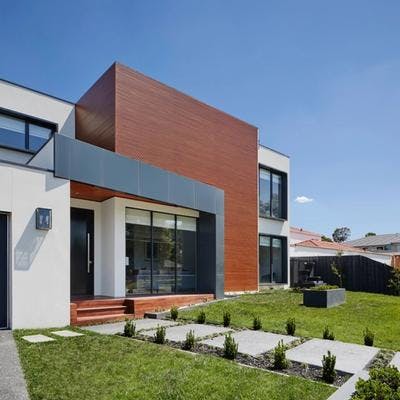
Introduction to Property Investment in Portugal
Embarking on an international property venture can be both exciting and challenging. One of the countries gaining prominence in the world of real estate investment is Portugal. Let's delve into the reasons behind Portugal's appeal and the growth of its property market.
Why Choose Portugal for Property Investment
Portugal offers a compelling blend of favourable factors for property investors. These include a robust and resilient property market, a stable political environment, and a high standard of living. Furthermore, the nation's Golden Visa programme provides an attractive avenue for non-EU nationals to gain residency through property investment.
Portugal's location on the Iberian Peninsula offers it a mild and sunny climate, making it a sought-after destination for tourists and ex-pats alike. This consistently high demand for accommodation, both for short-term rental and long-term living, makes property investment in Portugal a potentially profitable venture.
Another factor that sets Portugal apart is its significant investment in infrastructure and urban regeneration, particularly in the cities of Lisbon and Porto. This has resulted in modern, high-quality properties that are attractive to both local and international buyers.
For more insights on property investment in other countries, you may want to consider our guide on property investment in Barcelona.
Growth of Portugal's Property Market
In recent years, Portugal's property market has witnessed a steady rise in both demand and property prices. This growth is driven by several factors, including favourable government policies, increased foreign investment, and strong economic performance.
In 2019, Portugal saw a 13% increase in property prices, demonstrating the strong performance of its real estate market. Although the global pandemic has led to some uncertainties, the Portuguese property market has shown resilience, and long-term prospects remain promising.
Year Average Property Price (€/m²) % Change 2018 1,220 - 2019 1,377 +13% 2020 1,482 +7.6%
The growth of Portugal's property market, along with its attractive features, makes it a potential hotspot for international property investors. For those considering investing in the coastal region of Portugal, our guide on purchasing a property in the Algarve provides in-depth insights.
With the right knowledge and understanding of the market dynamics, property investment in Portugal can be a fruitful venture. As we delve deeper into the Portuguese property market, it's crucial to understand the legal and financial aspects of property investment in Portugal, which we will explore in the following sections.
Understanding the Portuguese Property Market
For those considering property investment in Portugal, a comprehensive understanding of the country's property market is crucial. This market is primarily bifurcated into two sectors: the residential property market and the commercial property market.
Residential Property Market
Portugal's residential property market has seen robust growth over the years. This thriving sector is driven by factors such as favourable taxation policies, a strong tourism sector, and an increasing number of foreign investors drawn by the country's Golden Visa programme.
The residential property market in Portugal offers a wide range of options, from traditional houses in the countryside to modern apartments in bustling city centres. The average price per square metre varies significantly depending on the location, with prime areas in Lisbon and the Algarve commanding higher prices.
Location Average Price per Square Metre Lisbon €3,290 Porto €2,690 Algarve €2,690
A more detailed analysis of the residential market, specifically related to the Algarve region, can be found in our article on purchasing a property in the Algarve.
Commercial Property Market
The commercial property market in Portugal, encompassing office spaces, retail outlets, and industrial properties, has also seen significant interest, particularly in the capital, Lisbon. This market has been buoyed by the country's economic stability, strong infrastructure, and the increasing globalisation of Portuguese businesses.
Investing in commercial properties can offer significant returns, provided investors are aware of the market trends and dynamics. For instance, there has been a shift towards the e-commerce sector, which has increased demand for industrial and logistics properties. On the other hand, traditional retail spaces in prime locations continue to fetch high rents and yields.
Property Type Average Rent per Square Metre Office (Lisbon) €21.50 Retail (Prime Locations) €90 Industrial (Lisbon) €5
Investing in the Portuguese property market, whether residential or commercial, necessitates a thorough understanding of the local market conditions, legal processes, and financial implications. Whether you're a seasoned investor or a first-time buyer, the key to a successful property investment in Portugal lies in diligent research, careful planning, and strategic decision-making.
Key Locations for Property Investment in Portugal
When considering property investment in Portugal, three locations consistently stand out for their investment potential: Lisbon, Porto, and the Algarve. Each offers a unique blend of cultural allure, economic stability, and burgeoning property markets.
Lisbon: The Capital City
Lisbon, the capital city of Portugal, has always been a hotbed for property investment. Its status as Portugal's economic, cultural, and political hub makes it a prime location for both residential and commercial property investment. Lisbon's property market is characterized by its historic architecture, combined with increasing modern developments.
Investing in Lisbon presents a diverse range of options, from refurbished apartments in historic districts to modern residences in upcoming neighbourhoods. The city's consistent tourism growth and strong rental market make it an attractive choice for international property investors.
Average Property Price per m² (€) Rental Yield (%) 3,000 - 5,000 4 - 6
Porto: The Northern Powerhouse
Porto, the second-largest city in Portugal, has been experiencing a surge in its property market over the past few years. Known for its rich history, stunning architecture, and booming tourism industry, Porto offers a promising landscape for property investors.
The city's property market is diverse, with opportunities ranging from luxurious riverfront apartments to traditional houses in the city's historic centre. With its growing popularity among tourists and foreign investors, Porto's property market shows no signs of slowing down.
Average Property Price per m² (€) Rental Yield (%) 2,500 - 3,500 5 - 7
Algarve: The Coastal Treasure
Renowned for its breathtaking beaches, exceptional golf courses, and pleasant climate, the Algarve region in southern Portugal is a preferred destination for holidaymakers and retirees. The region's popularity has led to a thriving property market, with a particular focus on holiday homes and luxury villas.
Investment opportunities in the Algarve range from sea-view apartments in bustling towns to secluded villas in tranquil villages. With its strong tourism sector and high demand for short-term rentals, the Algarve offers attractive rental yields for property investors. For an in-depth guide on investing in this region, visit our article on purchasing a property in the Algarve.
Average Property Price per m² (€) Rental Yield (%) 2,000 - 4,000 5 - 7
In conclusion, Lisbon, Porto, and the Algarve stand out as key locations for property investment in Portugal. Each offers unique opportunities and benefits for international property buyers. In making an informed decision, investors should consider several factors, including property prices, rental yields, and the potential for capital appreciation.
Legal Aspects of Property Investment in Portugal
Navigating the legal landscape is a critical step in any property investment journey. Understanding property ownership laws and the process of buying property in Portugal can help streamline your investment experience.
Overview of Property Ownership Laws
In Portugal, property laws are quite favourable to foreign investors. The country does not impose any restrictions on foreigners buying property, meaning that international investors can purchase both residential and commercial properties.
To ensure a clear transfer of ownership and to protect your property rights, a notary public will oversee and certify all property transactions. It's also important to note that Portugal operates under a 'first in time, first in right' property system, where the first person to register the property has the strongest claim to ownership.
For peace of mind and to ensure all legal aspects are correctly handled, it's highly advisable to engage a local attorney who specialises in real estate law. This will help in navigating the process and ensuring a smooth property transaction.
Process of Buying Property
The process of buying property in Portugal generally follows these steps:
- Property Search: Firstly, identify the property that suits your investment needs. This can be done independently or with the help of a real estate agent.
- Preliminary Contract: Once you've chosen a property, a preliminary contract is signed between the buyer and the seller. This contract outlines the terms and conditions of the sale, and a deposit is usually paid at this stage.
- Due Diligence: Your attorney will conduct due diligence to check the property's legal status and ensure there are no outstanding charges or liens against it.
- Deed of Purchase and Sale (Escritura Pública de Compra e Venda): This is the final contract that is signed in the presence of a notary public. The remaining balance is paid, and the property is officially transferred to the buyer.
- Property Registration: The final step is to register the property in your name at the Land Registry (Conservatória do Registo Predial).
For a more detailed overview of this process, refer to our guide on the property purchase process.
Understanding these legal aspects of property investment in Portugal is essential in ensuring a successful and trouble-free investment process. It's always a good idea to seek local legal advice to navigate these laws and regulations effectively.
Remember, a well-informed investor is a successful investor. Make sure to equip yourself with all the necessary knowledge before embarking on your property investment journey in Portugal.
Financial Aspects of Property Investment in Portugal
Understanding the financial aspects of property investment is crucial, particularly when investing in a foreign country. Here, we delve into the financial aspects of property investment in Portugal, including the role of property investment in portfolio diversification and the taxation and other financial considerations involved.
The Role of Property Investment in Portfolio Diversification
Investing in real estate in Portugal can be a strategic move towards diversifying an investment portfolio. Diversification is a risk management strategy that mixes a wide variety of investments within a portfolio to spread potential risks.
Holding Portuguese property can help to enhance portfolio diversification due to the country's steady real estate market growth and the potential for both rental yield and capital appreciation. With the added advantage of Portugal's strong tourism sector, investment properties can provide significant rental income, further diversifying investors' income streams.
It's important to remember that as with any investment, property investment in Portugal should be considered in the context of your overall investment strategy and financial goals.
Taxation and Other Financial Considerations
When considering property investment in Portugal, it's essential to understand the taxation and other financial implications involved.
In Portugal, a Municipal Property Transfer Tax (IMT) is applied to the purchase of Portuguese property. This tax is calculated on a sliding scale, depending on the property's value and use (residential or commercial).
There’s also an annual Municipal Property Tax (IMI) that ranges between 0.3% and 0.45% of the property’s tax value.
Tax Type Rate Municipal Property Transfer Tax (IMT) Sliding Scale Annual Municipal Property Tax (IMI) 0.3% - 0.45%
Portugal also has a wealth tax, known as Adicional ao Imposto Municipal sobre Imóveis (AIMI), which applies to the sum of the rateable value of properties held by an individual or a company.
Potential investors should also be aware of potential tax benefits. Portugal's Non-Habitual Resident (NHR) scheme offers tax advantages to foreign residents for a period of 10 years, including a potential flat income tax rate of 20% and tax-free foreign income.
Note that tax regulations can be complex and subject to change, and it's recommended to seek professional advice when considering property investment in Portugal. For a detailed understanding of the financial aspects of property investment, you may want to read our article on the property purchase process.
In summary, property investment in Portugal offers an exciting opportunity for portfolio diversification, potential returns, and tax benefits. However, it's crucial to fully understand the financial and legal implications before proceeding. Be sure to conduct thorough research and seek professional advice to navigate the Portuguese property market effectively.
Making a Successful Property Investment in Portugal
To make a successful property investment in Portugal, it's important to stay informed about the market trends and be aware of the potential risks and challenges.
Key Market Trends to Follow
Staying up-to-date with the latest market trends can significantly influence the success of your property investment. Here are some trends in the Portugal property market:
- Residential Property Growth: Residential property prices in Portugal have been on an upward trajectory, driven by strong demand and limited supply.
- Rise of Remote Working: With the rise of remote working, there's a growing demand for properties with additional space, such as home offices or outdoor areas.
- Sustainable Housing: There is an increasing interest in energy-efficient and sustainable housing, reflecting a global trend towards more environmentally-friendly living.
- Tourism Impact: Areas with high tourist footfall, such as Lisbon and Algarve, often have higher property values.
For a more detailed analysis of market trends, consider our article on property investment in Barcelona, which delves into similar trends in another popular European market.
Risks and Challenges to Consider
While property investment in Portugal is a promising venture, it does come with certain risks and challenges:
- Market Volatility: Property markets are subject to fluctuations. It's crucial to understand that property values can go down as well as up.
- Legal Complexities: Navigating the legal processes for buying property in Portugal can be challenging, especially for international buyers. Understanding the property purchase process is essential.
- Financial Considerations: Additional costs such as taxes, legal fees, and maintenance costs can impact the profitability of your investment.
- Currency Exchange Rates: For international investors, changes in currency exchange rates can affect the cost of investing in Portuguese property.
By staying informed about market trends and being aware of potential risks, you can make a more informed decision about your property investment in Portugal. Consider consulting with a financial advisor or real estate expert to help guide you through the investment process.





